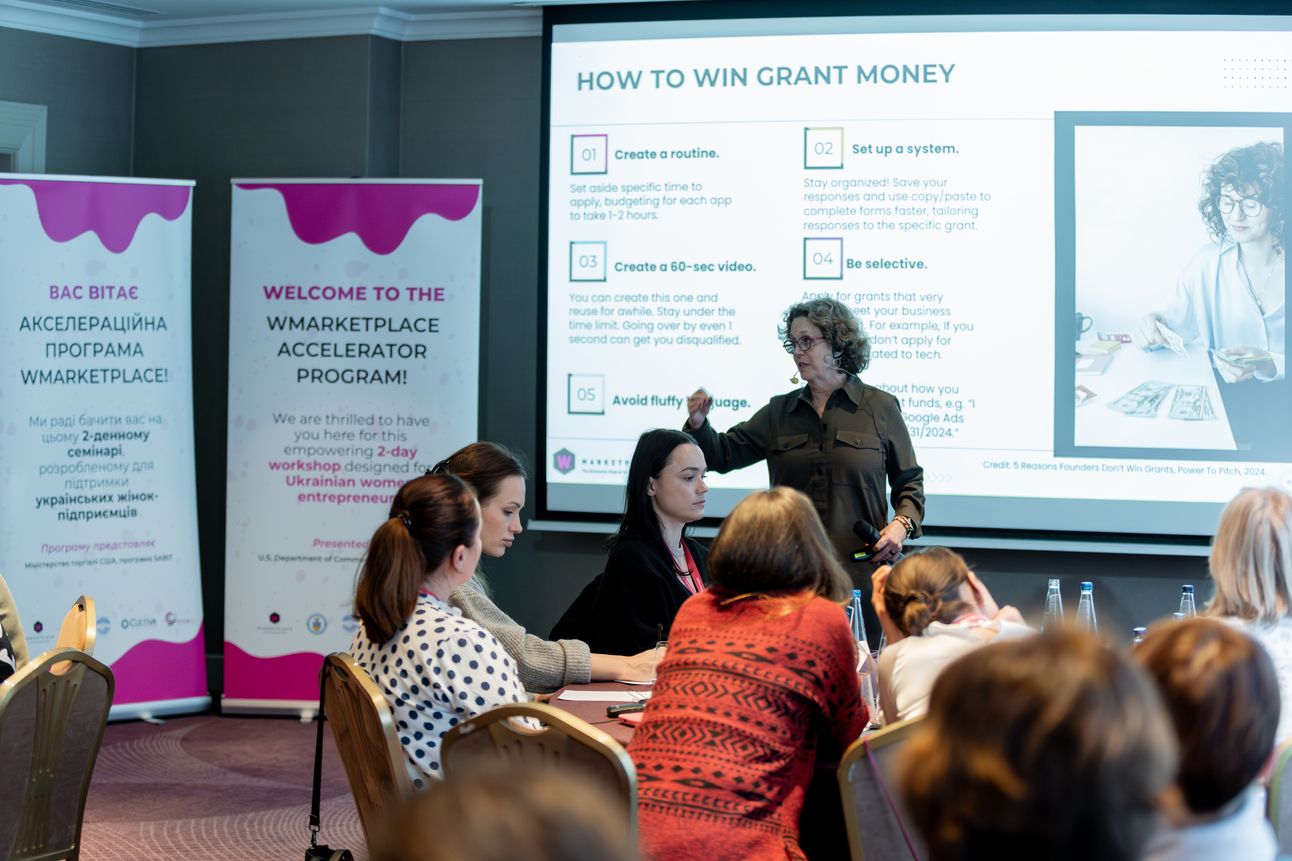
In January, Kate Isler traveled to Warsaw, Poland to kick off an accelerator program for displace Ukrainian women entrepreneurs. Photo courtesy WMarketplace Accelerator
What you probably already know: Kate Isler believes that ecommerce and the digital economy can level the playing field for women in business, regardless of where they live in the world. That’s why she started the WMarketplace Accelerator with her co-founder, Susan Gates. The idea is to teach women entrepreneurs how to use digital tools to identify an audience for their products and then sell their products globally. The company offers an accelerator program for women entrepreneurs to learn these skills and then apply them to their own businesses. This work has recently taken Isler to Ukraine.
Why? “Women entrepreneurs in Ukraine make up 58% of the tax base,” Isler said. That, she said, is certainly because women are becoming empowered and are interested in finding these new paths, but it’s also because many of the men are fighting in the war with Russia. “The reality is, they’re running these businesses and they need support,” Isler said. So the WMarketplace offered a pilot program to Ukrainian entrepreneurs and the women who participated experienced a 15% increase in sales in just over a year after they completed the program, which was supported by funding from the U.S. Department of Commerce. The Commerce Department than agreed to continue funding a program and Isler and team have offered it several more times since then.
What it means: Isler said the women in Ukraine want to contribute and help their families, their communities and their country. “The amount of resilience and drive that they have is unmatched,” she said. “I am continually humbled by them.” The system has worked so well, Isler is planning to replicate it in East Africa, likely Kenya, where the population is quite young and skews toward women entrepreneurs. The businesses they work with truly run the gamut, from health and beauty to gaming to chocolates. They’ve even helped service providers like music teachers find new audiences online.
What happens now? Isler is, of course, deeply concerned about how the pushback against DEI could impact what her company is trying to do, especially since some of their funding comes from the federal government. “We are an economic development company and that’s what we’ve always been,” she said. People have encouraged her to cater to both men and women to prevent losing that funding, but Isler pushes back on that. “Frankly I’m not interested in that because I don’t believe we start from the same starting blocks,” she said. It will take 137 years before women will reach parity with men. “It’s going to take all of us to change basically thousands of years of culture,” she said, and a little government pushback isn’t going to stop her from doing that work.

